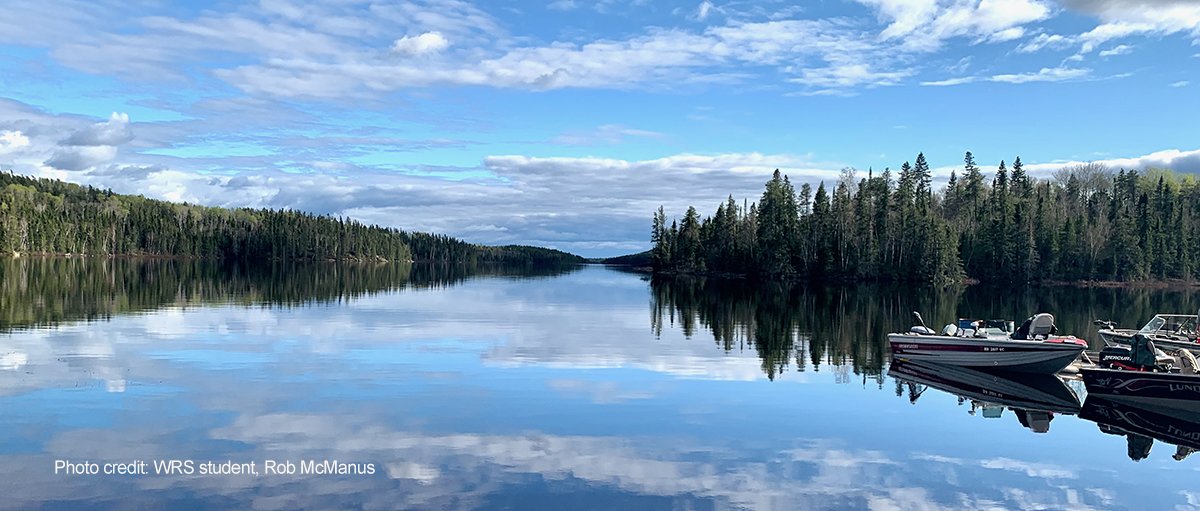Water Resources Science (WRS) students take a deep dive into the science behind planning, management, and designs necessary for our public policies related to water. Students will gain a holistic understanding of the hydrologic cycle and associated ecosystems as well as the interplay between biophysical sciences and social sciences. Students come to WRS from a variety of backgrounds like earth and environmental sciences, biology, chemistry, engineering, physics, or fisheries.
They take classes in limnology, hydrology, environmental chemistry, and policy, and complement that core with their choice of electives to propel them toward their career goals.
There are two locations to choose from! Located on campuses near picturesque Lake Superior and the Mississippi River, Duluth and Twin Cities students take advantage of Minnesota’s 12,000+ lakes and water sources for both research and recreation. Learn more about Duluth and the Twin Cities.
Interdisciplinary
WRS graduate students take courses from four core areas: Limnology, Hydrology, Environmental Chemistry and Water Policy. Then, they have the flexibility to choose from a wide array of electives to broaden their expertise and receive specialized training to complement their research interest. The program has a formalized track in Limnology and Oceanography, which has slightly different degree requirements. Review the Degree Requirements.
Intercollegiate
Our highly collaborative environment gives students the opportunity to gain valuable learning experiences working alongside researchers at renowned facilities as well as agencies headquartered in both cities.
Faculty
More than 100 faculty members are associated with the Water Resources Science graduate program. They consist of traditional tenure-track faculty and those with adjunct positions from 28 diverse departments or institutes at the University of Minnesota-Twin Cities and the University of Minnesota-Duluth. Many of these faculty teach courses as part of their departmental duties that in turn serve as either core or elective courses for the WRS M.S. and Ph.D. degree programs.
WRS faculty include eminent scholars with international reputations in water resources science and have been extremely successful at winning extramural funding for their water resources related research and publishing high-impact peer-refereed journal articles. They also lead several influential water resource related studies, as well as Minnesota legislative research initiatives on water, such as the MnDRIVE water initiative and the Aquatic Invasive Species Research Center.
The WRS graduate program has earned a national and international reputation for high quality and high productivity. According to a recent academic analytics report of 72 graduate programs, the WRS graduate program outperforms the national average in nearly all categories. In particular, WRS scores in the 90th percentile for measures such as:
- Number of faculty members holding grants
- Total number of grants
- Total number of publications
- Total number of citations that their articles receive
WRS faculty members also score in the 80th percentile in terms of the total dollar amount of grant funding and the 60th percentile for grant dollars per faculty member. WRS faculty are better cited than the national average, with citations per faculty member close to the 80th percentile.

